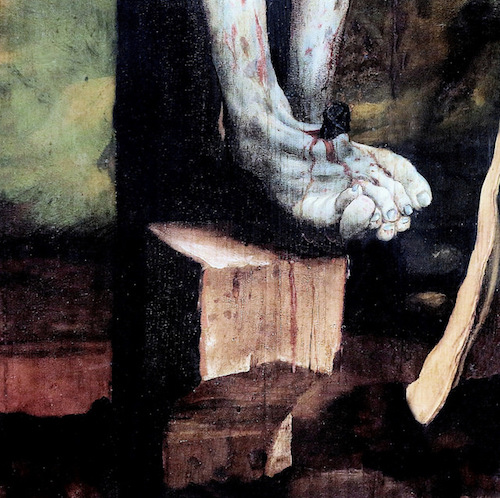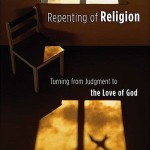We run our website the way we wished the whole internet worked: we provide high quality original content with no ads. We are funded solely by your direct support. Please consider supporting this project.

Nothing but Christ Crucified
One of the most remarkable expressions of the all-encompassing nature of the cross is reflected in an incidental, but extremely important, comment that Paul made in his First Letter to the Corinthians. He noted that when he brought “the testimony of God” to Corinth, he hadn’t come “with eloquence or human wisdom”. He instead “resolved to know nothing…except Jesus Christ and him crucified’ (I Cor. 1:1-2).
While this statement may be somewhat hyperbolic (did Paul really resolve to know absolutely nothing except Christ crucified?), it clearly implies that, for Paul, the entire gospel was found in the message of the cross. It implies that, when we understand what took place through the “foolishness of the cross,” we understand all that we need to know about God and about other humans. When you know the character of God revealed on the cross and what he thinks about us, as revealed on the cross, you’ve got the essence of all you need to know about anyone.
Excerpt from Benefit of the Doubt, pages 233-234
Photo credit: jean louis mazieres via Visualhunt / CC BY-NC-SA
Category: General
Tags: Cross, Good News, Identity in Christ, Jesus
Related Reading

Jesus, the New Israel
The Gospels present Jesus and the Kingdom he inaugurated as the fulfillment of Israel’s story. For example, Jesus’ birth fulfills Israel’s longing for a Messiah; his return from Egypt as a child mirrors their Exodus out of Egypt; his temptations in the desert allude to Israel’s temptations in the desert; his twelve disciples recall the…

Sermon: We The Church
The Anabaptists saw that the building is not the Church. God wants to dwell on this Earth, but it is not in a building. It is in his people. In this brief clip, Greg traces the origins to see how “church” became associated with buildings. Let’s recover our identity as the place where God dwells!…

God Became a Zygote
Has the Christmas story become so familiar that you’ve lost any sense of how spectacular it is? The great creator of the universe became a microscopic zygote. The all-powerful being who spoke the stars into existence came in a very small and vulnerable way. He crossed an infinite distance to become one of us. You can watch…

Quotes to Chew on: God’s Love When We Rebel
“Despite the fall and its consequent curse, however, God’s love was not deterred. God is love. God doesn’t stop being God simply because the humans he created have rebelled against him. God does not abandon his goal of having others share in the eternal, ecstatic dance of the Father, Son and Holy Spirit. The world…

Why Believe the Virgin Birth Accounts?
Some skeptics claim that the story of the virgin birth of Jesus is derived from similar stories from pagan literature. While I won’t address here the details of the various parallels that some use to argue this point—as it has been demonstrated by many scholars that they simply don’t hold up to scrutiny—I will offer…

